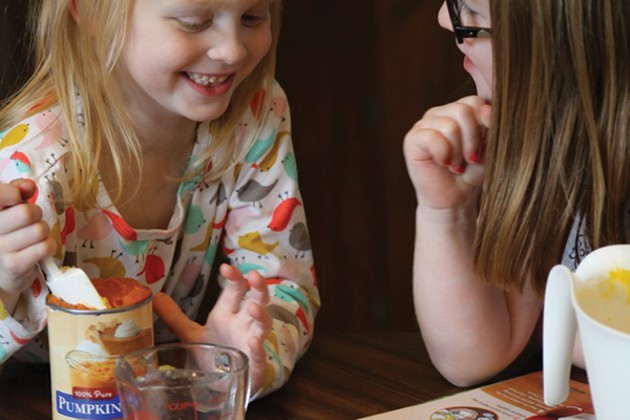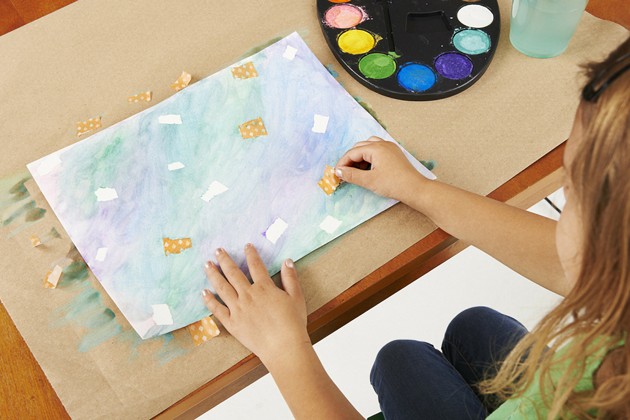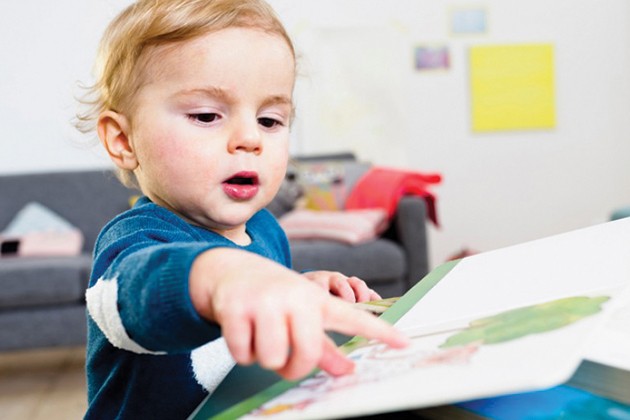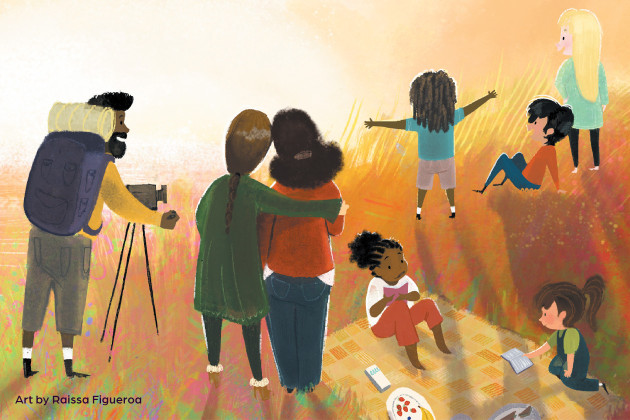Dear Highlights Podcast: Is Your Child At Risk For Depression or Suicide?
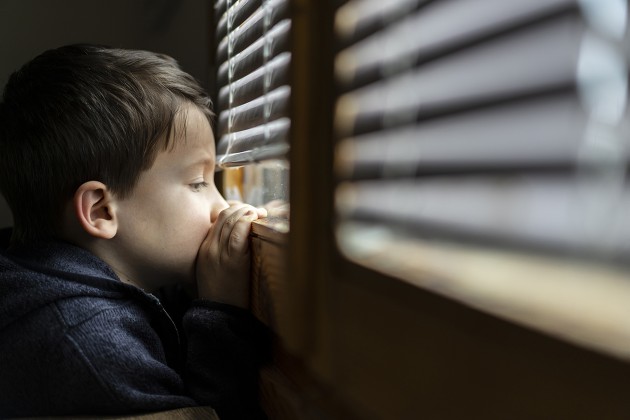
It may be hard to fathom, but children as young as age 8 can have suicidal thoughts, and many parents don’t know when their children are in crisis. In this week’s “Dear Highlights” podcast, our host Christine French Cully, talks with Dr. John Ackerman, a child clinical psychologist and the Suicide Prevention Coordinator for the Center for Suicide Prevention and Research (CSPR) at Nationwide Children's Hospital (NCH) in Columbus, Ohio, about risk factors and treatments for mood disorders and suicide in children, and how to tell if your child is at risk.
Christine notes that suicide is the second leading cause of death of children ages 11 to 19. She shares that at Highlights “…reader write letters and tell us that they have suicidal thoughts…we don’t receive many letters like this, but they do come on occasion. And we have to believe that each one of these letters, which reflects the child’s deepest pain and raises the specter of a parent’s worst nightmare, represents a few other similar letters that are thought about, but never written.”
“We all play a role in suicide prevention.”
Children who write to Highlights are usually under the age of 14, and Christine shares, “it's hard to fathom that children so young might contemplate suicide.” Dr. Ackerman notes that for a long time thoughts of suicide in young children were considered uncommon. However, now the research is starting ask two important questions:
- Are young kids thinking about suicide?
- Are they able to act on their suicidal thoughts?
Now that these questions are in the body of research, data show that among 9- and 10-year-olds, about 6% have had thoughts of ending their life and about 1% have made an attempt on their life. Dr. Ackerman stresses as well that it’s important to address mental health issues early, instead of waiting for a period of crisis.
Christine and Dr. Ackerman discuss the reasons a child might considering taking their own life, and Dr. Ackerman notes that pinpointing the exact reason for suicide ideation is complicated. He provides some risk factors:
- Relationship conflict
- Loss
- Bullying
- Strong emotions, without the tools to know how to manage or regulate them
- Situations where things seem hopeless
Children experience trauma and pain and have complicated emotions; however, young people, Dr. Ackerman explains, haven’t fully experienced ups and downs in the same way as adults have. Children might not say, “when I’m at my lowest, things will eventually get better.” They might see themselves at the lowest point and think that they’ll never get to a better place.
Dr. Ackerman advises to keep your environment a safe space, where both children and adults can have direct conversations and ask direct questions.
Christine asks the hard question about whether kids know what it is to die. Dr. Ackerman explains that kids are still developing the understanding about the finality of death. Children might think that dying by suicide will remove them from a painful situation, but that they can still float around and be a part of their lives.
One point that Dr. Ackerman stresses is that there’s a misconception around the reasons children might contemplate suicide, and that they aren’t trying to get back at the people around them. Things like depression and anxiety mask a young child’s ability to understand that they are worthy love and life. Engaging in suicidal behavior, he explains, is a child relieving their grown-ups and friends of the burden of having them there. It’s heartbreaking, he says, but it’s important for people to know. Christine shares that this type of emotional distress comes across in the letters Highlights receives.
When it comes to talking to children about suicide, Christine brings up that adults might feel like they don’t want to talk about it because it might make it more likely to happen. That’s the most common myth, Dr. Ackerman says.
There have been multiple studies proving that grown-ups don’t introduce the idea of suicide to a child. It’s uncomfortable for adult to ask questions about suicide, he notes, but having the discussion “…actually helps young people feel like they’re being listened to.” It’s a relief to a child to have a “curious and honest” conversation with their grown-ups about suicide, without trying to fix any issues they might be experiencing.
Dr. Ackerman says to ask direct questions, like “have you ever thought about wanting to take your life?” and “have you ever thought about wanting to die.” These are difficult questions, but asking them when the time is right and you’ve laid the groundwork for talking about big feelings, makes the conversation more productive and revealing.
What Dr. Ackerman has observed is if a child hasn’t considered suicide, they’ll simply say that they haven’t. If a child doesn’t answer with a definite no, there’s a good chance it’s crossed their minds. There can be multiple warning signs to indicate it’s time to talk to a health care professional, including changes in:
- Typical behavior
- Mood
- Appetite
- Sleep
- Irritability
- Joy in their usual activities.
Christine and Dr. Ackerman discuss how important it is to make mental health services available for young children. It’s imperative to remove barriers to care and provide mental health services everywhere, from school to primary care offices.
“It’s important for kids to have a whole network of people they trust,” Christine shares, because sometimes children are worried to share their troubling feelings with their parents and turn to other trusted adults. Dr. Ackerman reiterates this point saying, “People in a child’s life see different parts of them,” so it’s important that everyone has the ability to recognize a child who’s at risk.
The conversation turns to how kids can help other kids when they’re engaging in self-harming behavior or talking about suicide. Christine notes that sometimes kids write to ask for advice for how to help in these situations. Dr. Ackerman says to “keep is simple.” He shares the Signs of Suicide message ACT, which is
- Acknowledge—acknowledge that your friend is in pain
- Care—show your friend that you care
- Tell—tell a trusted adult
“Getting help for your friend or yourself is a sign of strength,” Dr. Ackerman stresses. He also states that even if a friend asks a child to keep a secret about the suicidal thoughts, it’s “not time for confidentiality. It’s time to mobilize the resources and safety networks to keep a young person doing well emotionally.”
Each podcast ends with Christine asking this question: Children are the world’s most important people, and if we as a society actually embraced that idea, what would we do differently to support the mental well-being of kids?
Dr. Ackerman answers with this: “We should make sure that kids [in] all aspects of their world have an understanding that emotional health is as important as physical and academic health. We [have] aspirations and goals…to reach [a certain] level of academic or professional competence or athletics…and have somehow managed to separate emotional growth out of that. I think we need to make sure that social-emotional learning happens early in life…and is a huge part of everything that we’re looking at.” He continues, “Grown-ups can ask themselves, am I asking the right questions, am I having direct conversations, have we reduced the stigma of mental health and the topic of suicide."
Dear Highlights addresses the issues around being a kid today and offers parents expert advice to help raise their children to be their best selves. Tune in wherever you listen to your favorite podcasts! We launch a new episode every Tuesday morning.

